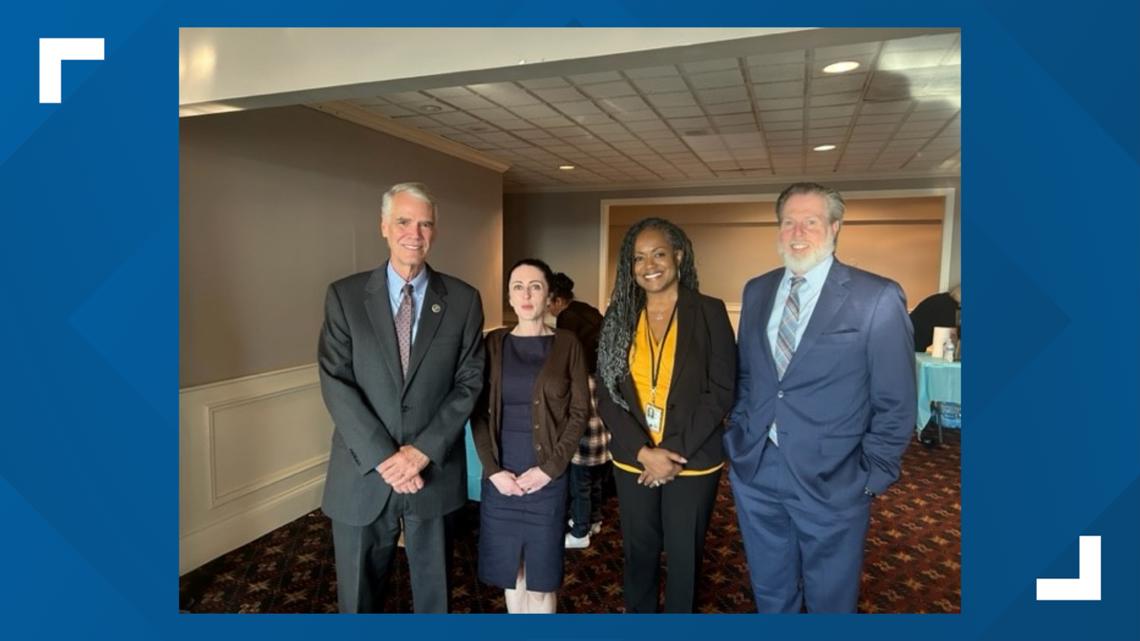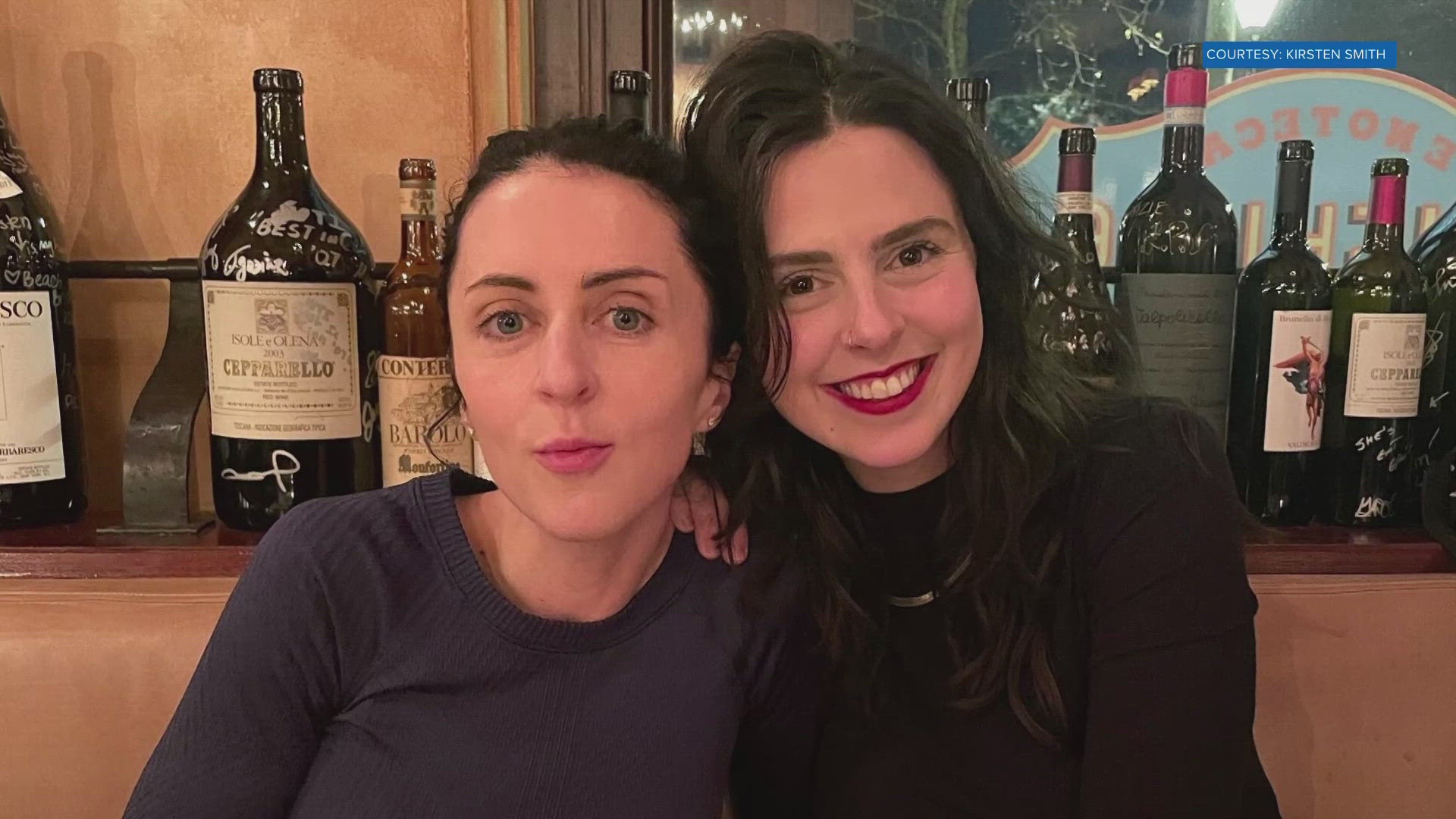KNOXVILLE, Tenn. — Monday, Kirsten Smith returned to Knoxville speaking to the same group of prosecutors, judges and FBI agents who put her in prison for robbing a bank when she was 24 years old.
Now, she has a Ph.D. and is an assistant professor at Johns Hopkins University on the school's Baltimore campus, studying opiates, drug addiction and kratom. She said she grew up living a normal, middle-class life in West Knoxville. Then, she started doing drugs which later developed into a heroin addiction that changed her life.
Smith said a classmate at Bearden High School injected her with morphine when she was 16 years old.
"That was my first exposure to injection drug use and to opioids," Smith said. "I knew, even though I tried many different drugs, I really liked that experience and I was like, 'I wanna try this again.'"
She said she dropped out of high school at 17 years old. She then continued to use drugs, specifically Oxycontin. At 19 years old, she said her parents forced her to go to treatment for substance abuse but it didn't work.
She said the first time she did heroin, she got it through Brad Renfro's cousin. He was from Knoxville and was an actor in The Client and Tom and Huck. He died in 2008.
"The first time I ever injected cocaine was with Renfro," Smith said. "It was in his house. He died when I was in county (jail). So he and I hung out for I don't know, probably, like, a couple of months. In fact, the first time I ever smoked crack, which was not necessarily my thing, was with him as well."
She also said several young people in her neighborhood were using heroin too.
"I do think part of it is that we didn't have a lot of consequences," she said. "We got away with a lot and we really did. I don't think it was easy for any of us to see at the time because we were young."
She said it started with prescription drugs from friends or family.
"A lot of young people from West Knoxville first got introduced to opioids, and it wasn't through street heroin. It was through prescriptions," she said.


Smith said in 2005, heroin made its way to Knoxville and more people started using the potent drug.
"I would say between ages 21 and 23 is really when I was injecting either pills or heroin daily," Smith said. "I still had a job, I was still going to community college at Pellissippi. I was functioning, but certainly not like, you know, a normal 21-year-old."
Smith said she got fired from her job for starting work while high. With no money coming in, she was concerned about possible withdrawal symptoms and decided that to get money, she would rob a bank.
"I would like to say that there's a better explanation for how this, like, formulated in my head," she said. "I'm like, 'Well if I'm gonna rob a place, I'll just rob a bank'. And so I literally got up and went to the SunTrust that was near my parents' house off Northshore."
She said she was living with her boyfriend at hte time, Michael Scott Bumpas. Smith said she couldn't talk him out of robbing another bank, and this time, she drove the getaway car.
"We got caught that day and I was taken to the federal courthouse and sent to jail," Smith said. "I was on pretrial house arrest for several months, and then ended up breaking house arrest and you know, that was really the lowest point."
Smith spent nine months in Blount County Jail, and then she was moved to federal prison in Florida for around two years and six months.
"The one thing prison showed me, apart from just being punished and realizing I don't ever wanna go back there, was that I actually was a good person. I was being a burden to society. And so I knew I didn't want to be a burden," she said.
Although Smith and her boyfriend were admitted to the University of Tennessee before prison, she and her boyfriend were not admitted after prison due to their felony convictions.
She said it was disheartening, and it was clear the path to restarting regular life was flawed for people who had been incarcerated.
"I can't regain trust unless I get a foothold in some door at some point, so where is the foothold? And if it's not in education, I don't know where it is," Smith said.
She then went to the University of Kentucky, where she got a master's degree in social work to be an addiction therapist.
"I started doing my clinical training, and I realized that a lot of the systems of care are just really, really broken in so many ways," Smith said.
That realization led her to research, which she continues today.

